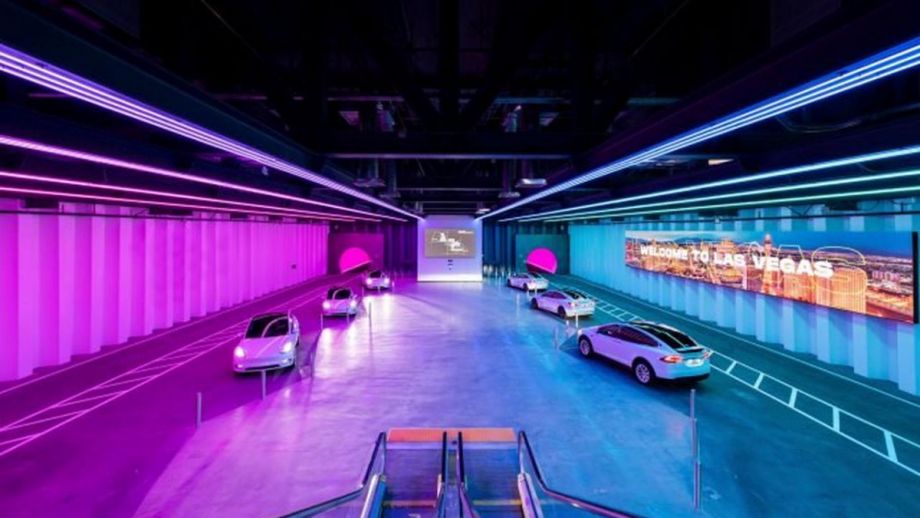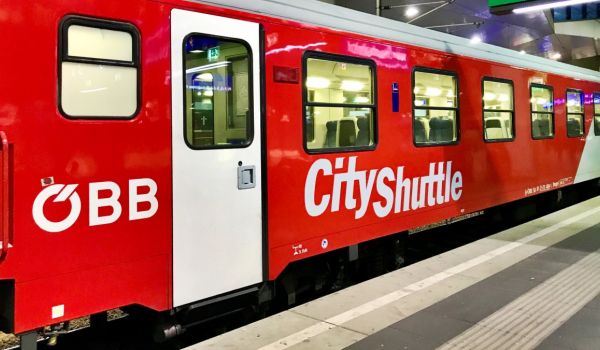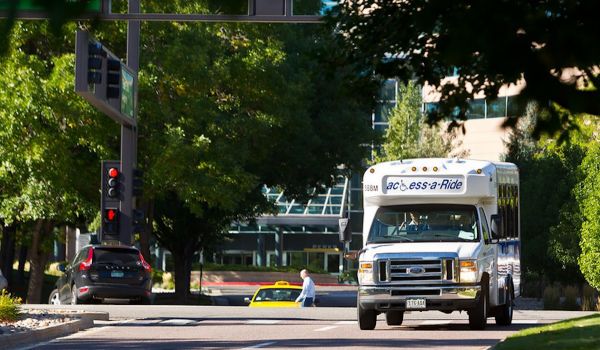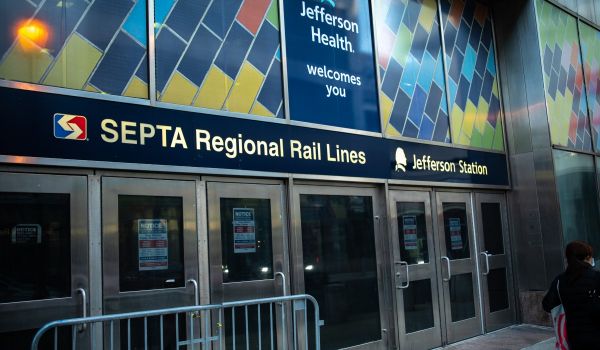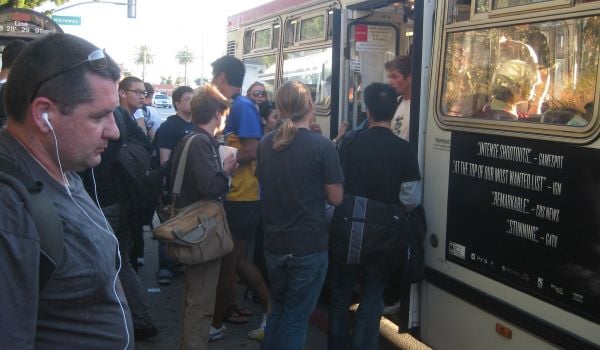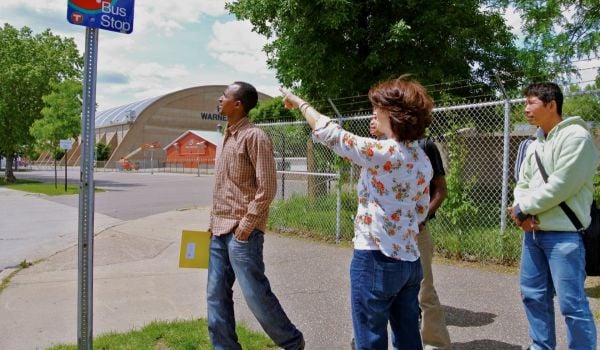Welcome to The Mobile City, our weekly roundup of noteworthy transportation projects.
Clark County OKs 15-Mile Tesla Tunnel Loop for Las Vegas
That Tesla transit tunnel under the Las Vegas Convention Center just barely met the passenger-carrying thresholds set for it, but that apparently hasn’t dampened enthusiasm for Elon Musk’s modest-capacity, Tesla-powered subway in Vegas. In fact, the gambling capital is raising its bet on The Boring Company’s transit vision of the future.
The Las Vegas Review-Journal reports that the Clark County Commissioners approved on Oct. 20 a 50-year franchise agreement with The Boring Company that will give the city a 15-mile, mostly-underground double loop transit line connecting the Las Vegas Convention Center, the Las Vegas Strip, Allegiant Stadium, the University of Nevada-Las Vegas and other local destinations.
As with the Convention Center loop, Tesla automobiles will transport passengers to their destinations. The system is designed to operate along the lines of “personal rapid transit”: Passengers would board a car at one station and ride it directly to their destination station, with the vehicle bypassing stations along the way. The stations themselves, therefore, will be offline, and most of them will be on the surface.
When completed, the line will have 51 stations in all. The commission’s vote only approved the line’s alignment; individual construction permits will be issued for each station. In addition, the Las Vegas City Council must approve the in-city portion of the line separately. Approval is expected sometime this week.
Boring Company President Steve Davis told the Las Vegas Review-Journal that the line will be built in phases, with individual stations coming online as soon as they are finished. The company plans to have five to 10 stations open within six months of the start of construction, then add 15 to 20 stations a year until the line is complete. At that pace, completion would come in three to four years. When complete, Davis says the tubes could carry 57,000 passengers per hour.
The project will be built entirely with private funds. No total project cost has been released. The Boring Company will pay a percentage of the line’s revenues to the county each year, with the percentage based on the total revenue amount.
Davis told the paper that a 3.6-mile ride from the Convention Center to Allegiant Stadium would take four minutes and cost $6. “This is not transportation for the wealthy,” Davis says. “It’s very affordable, very accessible and very, very comfortable.”
San Diego Takes First Step Toward Free Transit for All
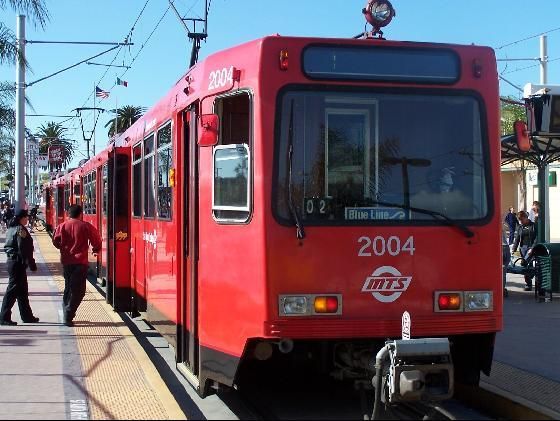
(Photo by J. Stephen Conn / CC BY-NC 2.0)
An $8 million pilot project in San Diego will pay for free transit for riders 18 and younger, which the San Diego Association of Governments (SANDAG) approved at its Oct. 22 board meeting.
The Coast News Group reports that $5.3 million of the total will go to the San Diego Metropolitan Transit System (MTS) and $700,000 of it will go to the North County Transit District. San Diego County Supervisor Nora Vargas told KUSI that one aim of the pilot project was to “create lifelong riders for public transportation” and that the program would make it easier for youth to reach schools and jobs. Some North County governments objected to the program on the grounds that transit service in that part of San Diego County is inadequate.
Ultimately, the San Diego Union-Tribune reports, SANDAG would like to implement free transit for all countywide by 2030, paid for by per-mile road user fees for drivers. The metropolitan transportation planning agency plans to take its plans public at a meeting this Friday.
A Growing Number of Cities Say Jaywalking Shouldn’t Be a Crime
Should pedestrians be punished for crossing the street when and where they please? This has become a live question in a number of jurisdictions as mobility-justice advocates call for decriminalizing jaywalking, which is usually defined as crossing a road outside of a marked crosswalk or intersection.
Smart Cities Dive reported on a recent webinar on the subject sponsored by America Walks, one of those mobility-justice organizations. These advocacy groups and others argue that jaywalking was a “crime” invented by the auto industry, that the anti-jaywalking laws encourage aggressive driving and don’t make pedestrians safer, and that they are unevenly enforced, with Black and brown walkers getting the brunt of citations.
Some jurisdictions have taken these arguments to heart. The city council of Kansas City, Missouri, for instance, voted this past May to eliminate all tickets and penalties for jaywalking. The state of Virginia kept its anti-jaywalking law on the books but made it harder to enforce, and one police district in northwest Philadelphia is piloting a policy of eliminating police stops for a host of minor traffic offenses, including jaywalking.
This argument, however, has yet to be universally embraced. Massachusetts is considering steeply hiking fines for jaywalking, and California Governor Gavin Newsom vetoed a bill that would have eliminated fines or penalties for jaywalking in that state. Opponents of jaywalking reform worry that weakening or removing anti-jaywalking laws would only add to the carnage on the nation’s roads when cars hit pedestrians, while proponents, in addition to pressing the racial-disparity angle, say that the carnage is the result of drivers — not walkers — behaving badly.
Know of a development that should be featured in this column? Send a Tweet with links to @MarketStEl using the hashtag #mobilecity.

Next City contributor Sandy Smith is the home and real estate editor at Philadelphia magazine. Over the years, his work has appeared in Hidden City Philadelphia, the Philadelphia Inquirer and other local and regional publications. His interest in cities stretches back to his youth in Kansas City, and his career in journalism and media relations extends back that far as well.
Follow Sandy .(JavaScript must be enabled to view this email address)

